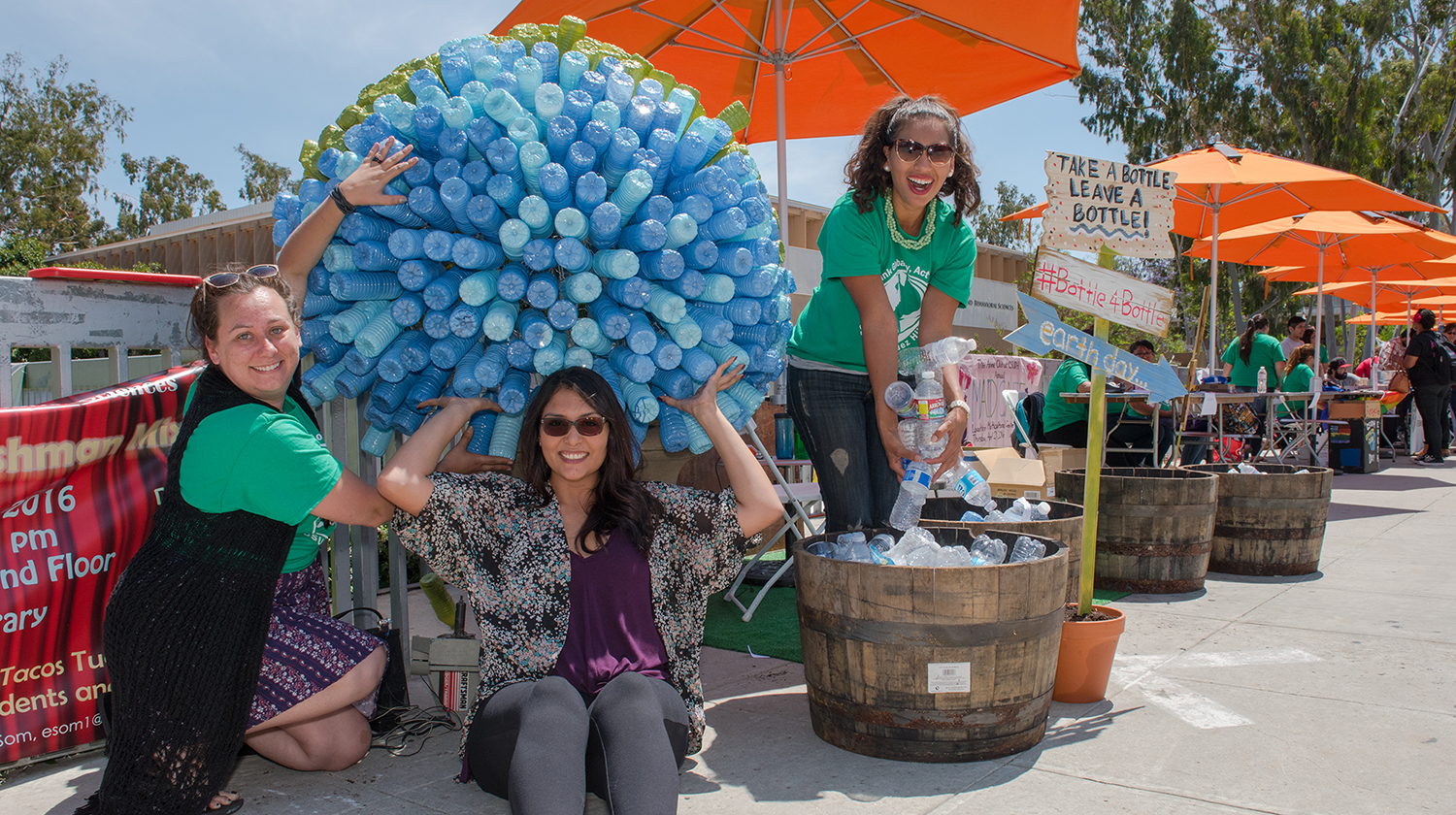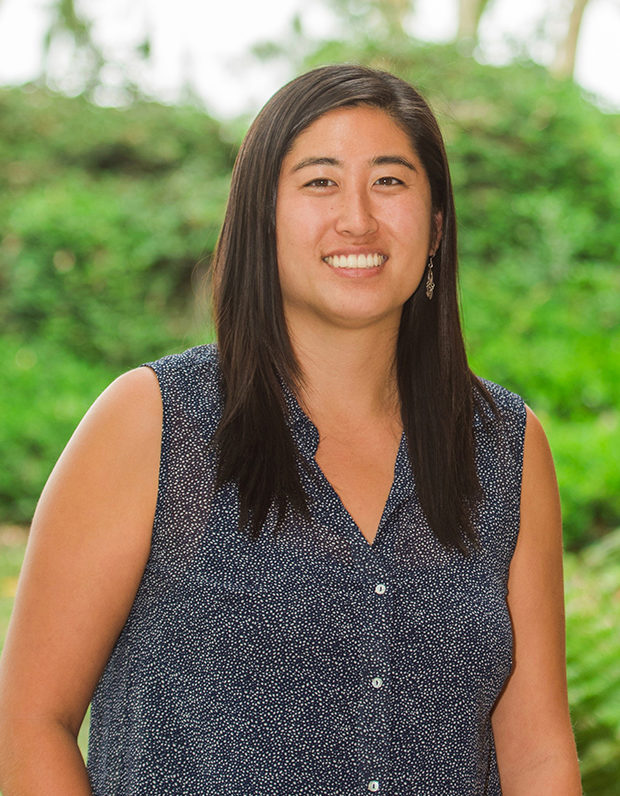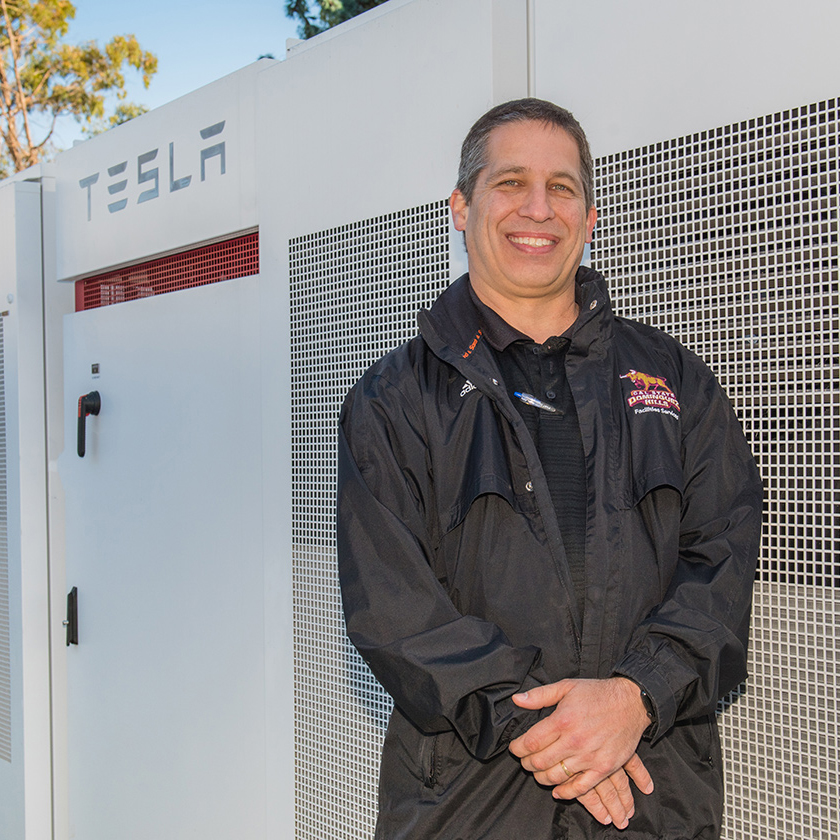
California State University, Dominguez Hills (CSUDH) has been named a STARS Bronze Institution by the Association for the Advancement of Sustainability in Higher Education (AASHE), marking the first time the campus has been recognized nationally for its overall environmental sustainability efforts.

AASHE’s STARS (Sustainability Tracking, Assessment and Reporting System) rating system examines such criteria as campus and public engagement, sustainable operations, planning and administration, and innovation and leadership. A STARS bronze through platinum rating is valid for three years.
“This recognition puts us on the map in terms of sustainability at the national level. It’s a real who’s who regarding the campuses that are working hard to make a real impact,” said Ellie Perry, who joined CSUDH in fall 2017 as coordinator and assistant energy analyst for the new Office of Sustainability. “Just getting rated shows we’re making progress and working in the right direction.”
Perry and her student interns have made significant strides in developing new innovative sustainability projects and programs that engaging campus stakeholders and in formalizing policies supporting sustainability. Many of these initiatives are credited with the campus receiving the STARS bronze rating.
One of the most popular programs for students is CSUDH’s five-week October Sustainability Month campaign, which combines tabling events, tours, competitions, and green workforce development opportunities. In July 2018, the campaign garnered a statewide “Best Practice Award” during the California Higher Education Sustainability Conference (CHESC) for its data-driven communications approach to commuter sustainability outreach.
Also recognized at the conference was CSUDH’s new 1MW/four-hour battery storage unit, which was installed in December 2017 and went online in early 2018 under the management of Kenny Seeton, central plant/energy manager at CSUDH. Consisting of 20 Tesla battery banks, the energy storage system is designed to reduce the university’s impact on the local power grid during peak hours, and made the university one of the first to participate in an innovative load relief program that combines artificial intelligence (AI)-energy storage and demand response.

As an example of how the campus is rallying around sustainability, students became personally involved in the development of the Net Zero Innovation Center, which was completed and opened in April 2018. Created as a partnership between Associated Students, Inc. and Facilities Services, the center is a living laboratory for students to experience renewable energy, water saving and waste management principles in action. It is equipped with several sustainability technologies, such as detailed energy monitoring capabilities, solar panels, and a rain gutter/barrel system.
“The sustainability interns are continually building up the center with new devices and touches to make it even more interactive for their peers,” said Perry. “I’m really looking forward to introducing faculty and classes to the space this fall as part of our upcoming outreach events.”
In February 2018, CSUDH launched the Urban Farm, a multidisciplinary laboratory that provides a venue for faculty to engage students not only in organic gardening and urban horticulture techniques, but also in discussions about larger societal issues around sustainability, and access to healthy food choices in urban environments. Working with Facility Services, the farm is also researching how to establish an effective closed-loop system on campus to compost green waste generated by grounds operations.
The Urban Farm’s green waste program ties directly into CSUDH’s new grounds and landscape suitability initiatives. In September 2017, the university formed the Sustainable Landscape Committee, which created a plan that integrates grounds practices and planning with faculty research that serves as a definitive guide for campus landscaping that addresses ecosystem function, water efficiency, and student research.
“As we move along and continue to add more sustainability projects into the campus culture we will just keep getting recognized more and more,” Perry said. “We may be bronze now, but in a couple of years I can see us getting gold, or even platinum.”